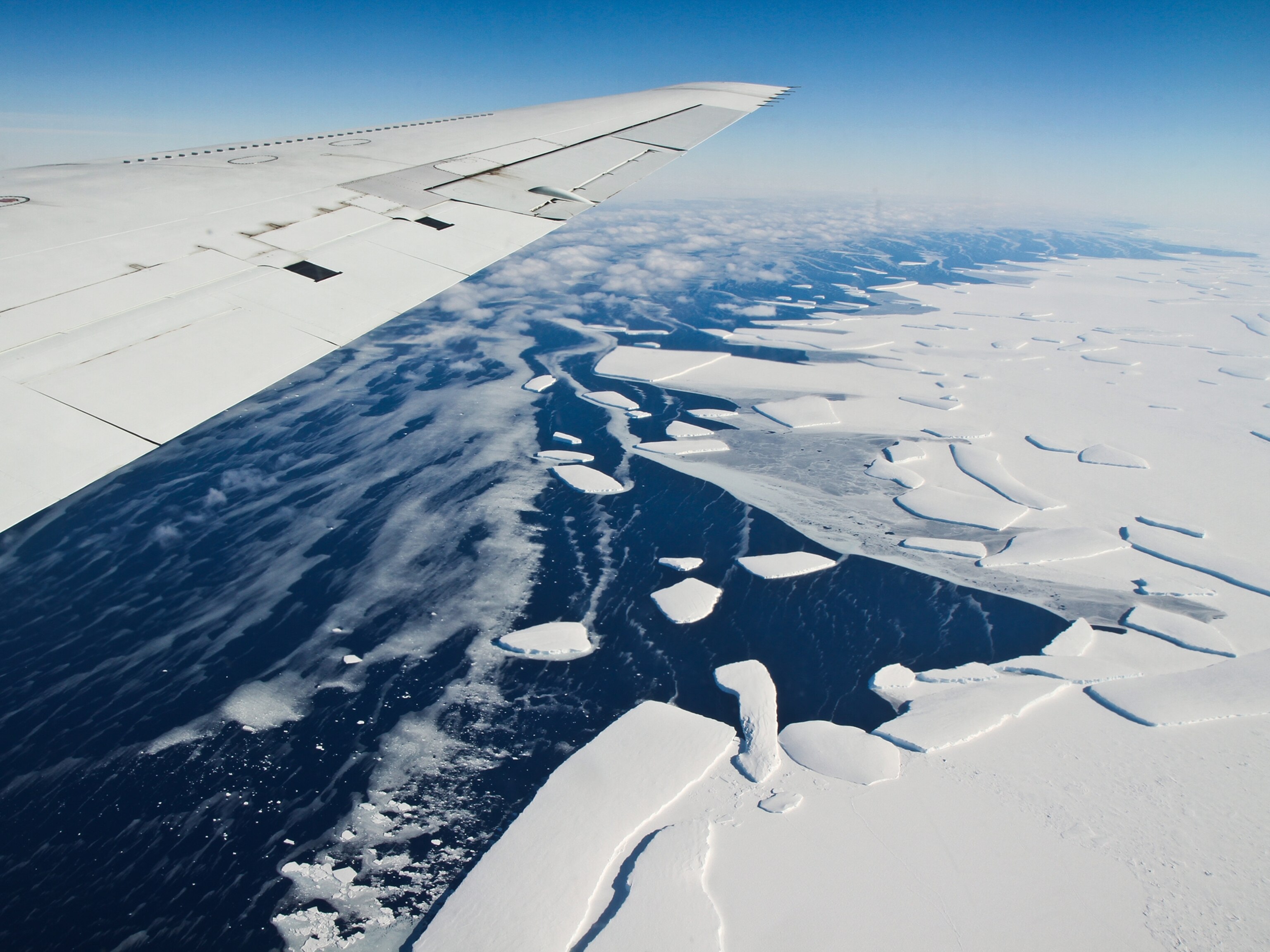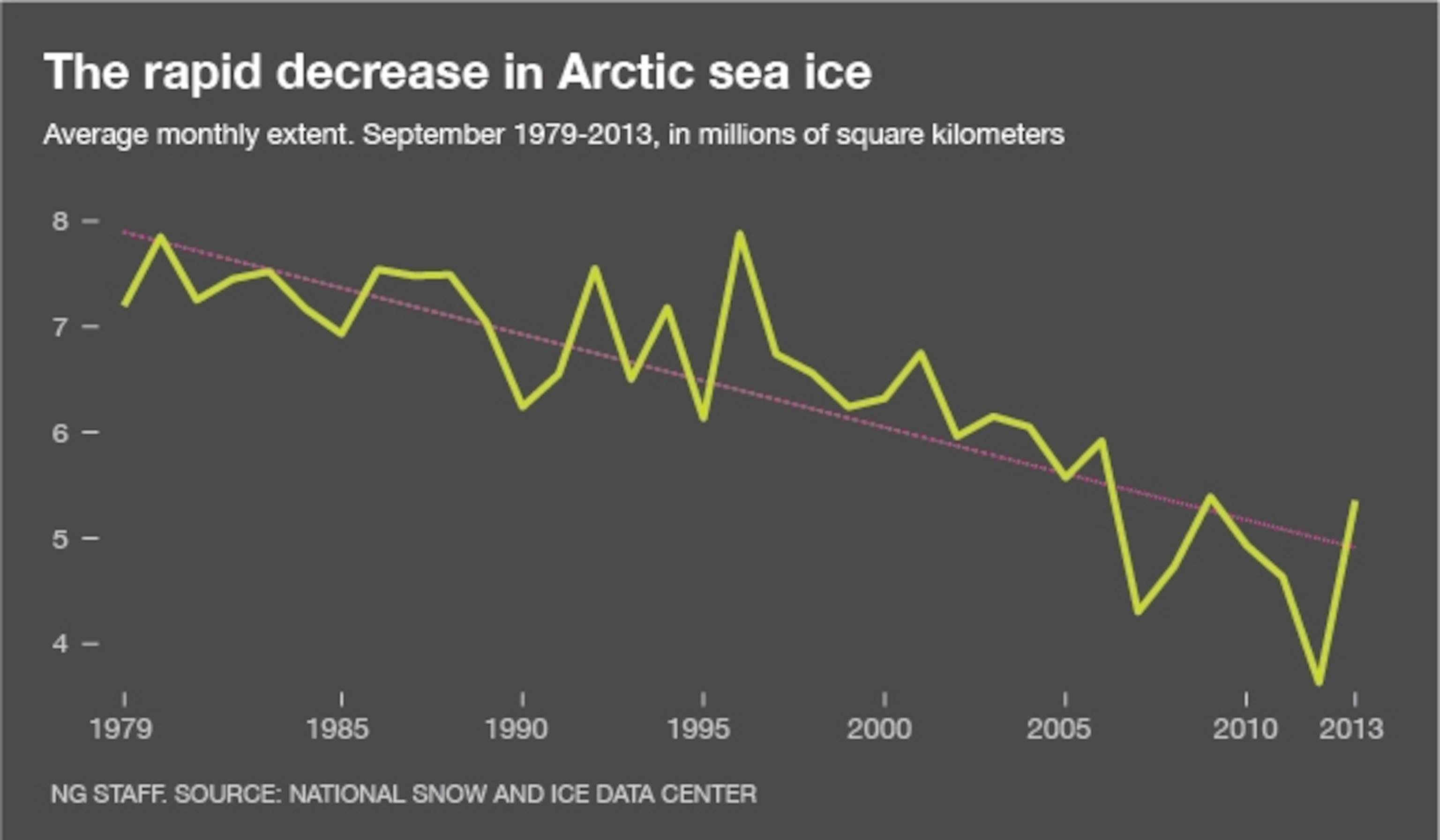
Abrupt Climate Disaster Threat Raises Call for Early Warning System
Climate change "tipping points" could be sudden and surprising, experts say.
The threat of sudden climate change disaster—from the poles melting to farmlands failing—is real and requires an early warning system, an expert panel suggested on Tuesday.
Looking at "tipping points" for global warming disasters, the National Research Council panel report on "abrupt" climate impacts finds noteworthy risks of sharp, sudden sea-level rise, water shortages, and extinctions worldwide in coming years and decades.
"Climate change is real, it is happening now, and we need to deal with it," says James White of the University of Colorado, Boulder, who headed the panel. "Step number one is to recognize the points where we stand on the threshold of abrupt impacts." (See also "Global Warming Report: 5 Takeaways.")
Ultimately, the report envisions an abrupt climate impact early warning system that would be integrated into existing warning systems for droughts, floods, or other disasters and that would build off current ecological monitoring networks.
An Intergovernmental Panel on Climate Change report released earlier this year concluded it was "very likely" that burning fossil fuels and other industrial activities were responsible for global warming, most notably more than half of the 1.3°F (0.72°C) rise in average surface temperatures worldwide since 1951.
Worries about tipping points in the climate and resulting abrupt climate disasters, such as ocean currents halting or "runaway" global warming, have figured in climate science for more than a decade, most notably in a 2002 NRC report and in warnings from Columbia University climate scientist James Hansen.
The new report differs from past ones in taking continued global warming as inevitable and looking for impacts on humanity and animals, not just geophysical and weather effects like melting glaciers or drought.
"The report is a break from the past in that it includes abrupt changes in the environment that can result from even small, steady increases in temperature or other climate change effects," says geoscientist Peter Clark of Oregon State University in Corvallis, who was not on the report panel. "I think that is an important point [that] the report is making."

Ice, Water, and Extinction
Panelists examined a wide range of abrupt climate impacts, ranging from the collapse of the West Antarctic Ice Sheet to sharp drops in ocean oxygen levels.
"The rate of climate change now underway is probably as fast as any warming event in the past 65 million years, and it is projected that its pace over the next 30 to 80 years will continue to be faster and more intense," the report says.
In coming decades, the report forecasts a high risk of the disappearance of summertime Arctic sea ice—an abrupt climate change impact already under way—and extinctions in the ocean and on land.
Rapid ecological shifts that threaten farmland as well as wildlife across broad regions, such as tropical forests, are rated as a "moderate" risk.
Unknown Risks
An abrupt slide of the vast West Antarctic Ice Sheet into the ocean would suddenly sink coasts worldwide under 10 to 13 feet (3 to 4 meters) of water. The report rates the risk of this calamity as "unknown" although probably low for this century.
"Unknown means we should be studying this question intently, not pretending it isn't there," White says.
The report does downplay some past scenarios for abrupt climate threats, notably the sudden cessation of Atlantic currents that bring warmer weather to northern Europe and the sudden release of methane, an atmosphere-warming greenhouse gas that is now frozen in permafrost across the Northern Hemisphere.
Clark says those assessments agree with more recent studies.
However, paleoclimate expert Thomas M. Cronin of the U.S. Geological Survey office in Reston, Virginia, expressed caution about the report's conclusion that abrupt climate change would likely drive coral extinctions in the ocean or wipe out species in tropical forests. In the latter case, he said, "it is hard to separate human effects, or the timescale of possible extinctions."
On the other hand, Cronin also suggested that the report underplays the threat of the Atlantic Ocean's circulation disastrously halting, or the sudden release of large quantities of methane from warming Arctic permafrosts.
Climate Monitoring
Such disagreement underlines the need for more monitoring of ocean and ice temperatures, and species and weather conditions worldwide, White suggests.
"Knowledge is always good. It is always better to have more knowledge about what is going on," he says. "But we are seeing declines in funding of monitoring of climate, just at the time when we need it most."
The report does not lay out a cost for an abrupt climate impact early warning system, but White points to disasters such as the $68 billion in damages caused by Superstorm Sandy last year for perspective.
Regarding monitoring, he says, "the cost would be not much weighed against the trillions of dollars of assets at risk on the coasts."